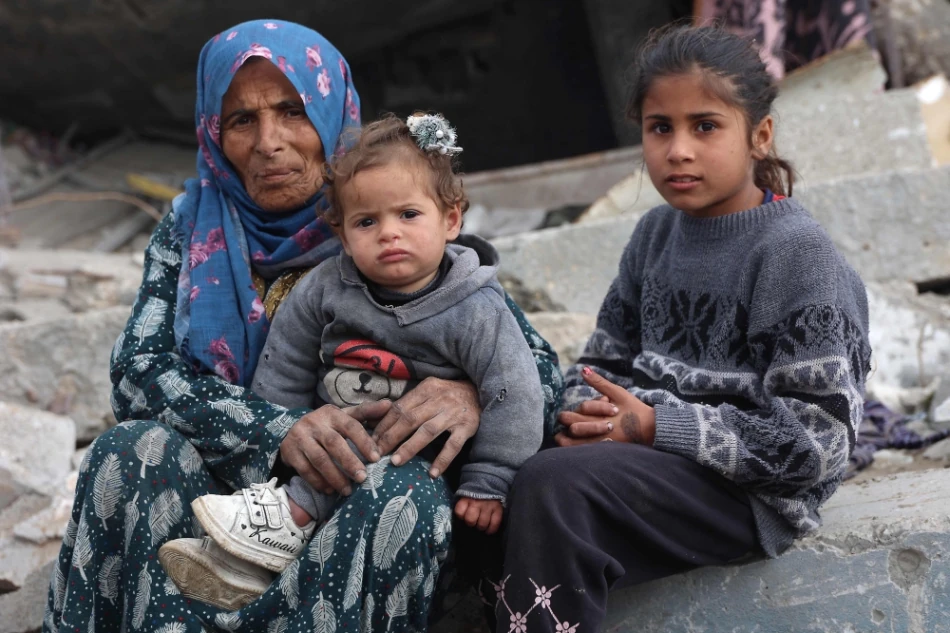
Gaza Faces Looming Humanitarian Crisis: Over 100 Organizations Sound Alarm on Potential Mass Starvation
Gaza Crisis Reaches Breaking Point as 100+ NGOs Warn of Mass Famine
More than 100 international humanitarian organizations have issued an urgent joint warning about the spread of "mass famine" across Gaza, as the territory enters its 22nd month of devastating conflict. The coalition, including Médecins Sans Frontières, Amnesty International, and Oxfam, reports that aid workers and civilians are experiencing severe malnutrition while tons of essential supplies remain trapped outside the enclave's borders.
Humanitarian Catastrophe Deepens Despite Available Aid
The stark reality facing Gaza's population has crystallized in recent days, with Al-Shifa Medical Complex reporting that 21 children died within a 72-hour period due to malnutrition and famine-related causes. This grim milestone underscores what the United Nations has described as famine "knocking on every door" in the territory.
What makes this crisis particularly tragic is the proximity of relief. According to the humanitarian organizations, tons of food, clean water, medical supplies, shelter materials, and fuel sit unused in warehouses just outside Gaza's borders and even within the territory itself. The bottleneck isn't availability—it's access.
The Access Crisis
The NGO coalition's statement reveals a critical gap between humanitarian intention and implementation. Organizations report being unable to reach or deliver existing supplies, creating a devastating paradox where aid exists but cannot reach those who desperately need it. This situation echoes similar access challenges seen in other conflict zones, but Gaza's unique geographic constraints—essentially a sealed enclave—make the problem particularly acute.
Escalating Violence at Aid Distribution Points
The humanitarian crisis has been compounded by violence targeting aid operations themselves. The UN High Commissioner for Human Rights has accused Israeli forces of killing over 1,000 people at aid distribution points since late May, with most incidents occurring near facilities operated by the Gaza Humanitarian Foundation.
This pattern of violence at aid sites represents a dangerous escalation that humanitarian experts say violates international law and creates a chilling effect on relief operations. When aid distribution becomes a life-threatening activity, it fundamentally undermines the entire humanitarian system designed to protect civilian populations during conflicts.
International Response and Implications
The joint statement from over 100 NGOs carries significant weight in international humanitarian circles, representing organizations that collectively operate across dozens of countries and have experience managing crises from Syria to Yemen to Ukraine. Their unified call for immediate action—including a ceasefire, opening all land crossings, and ensuring free flow of humanitarian aid—reflects the gravity of the situation.
Comparing Crisis Responses
Unlike other recent humanitarian crises where international coordination eventually established humanitarian corridors—such as in Ukraine or during the Syrian conflict—Gaza's situation remains uniquely constrained. The territory's borders are controlled by parties to the conflict, making traditional humanitarian access negotiations more complex than in other war zones where neutral corridors can be established.
What This Means Moving Forward
The convergence of mass famine warnings, documented violence against aid operations, and trapped relief supplies creates a humanitarian perfect storm that demands immediate international attention. The situation has moved beyond typical wartime hardship into what experts recognize as a systematic breakdown of civilian protection mechanisms.
For the international community, this crisis tests fundamental principles of humanitarian law and the responsibility to protect civilian populations. The organizations' call for immediate action isn't just about Gaza—it's about whether international humanitarian systems can function effectively in modern conflicts where access itself becomes weaponized.
The coming weeks will likely determine whether diplomatic pressure can create the access needed to prevent what these 100+ organizations warn could become one of the most severe humanitarian catastrophes in recent memory.
Most Viewed News

 Sara Khaled
Sara Khaled






